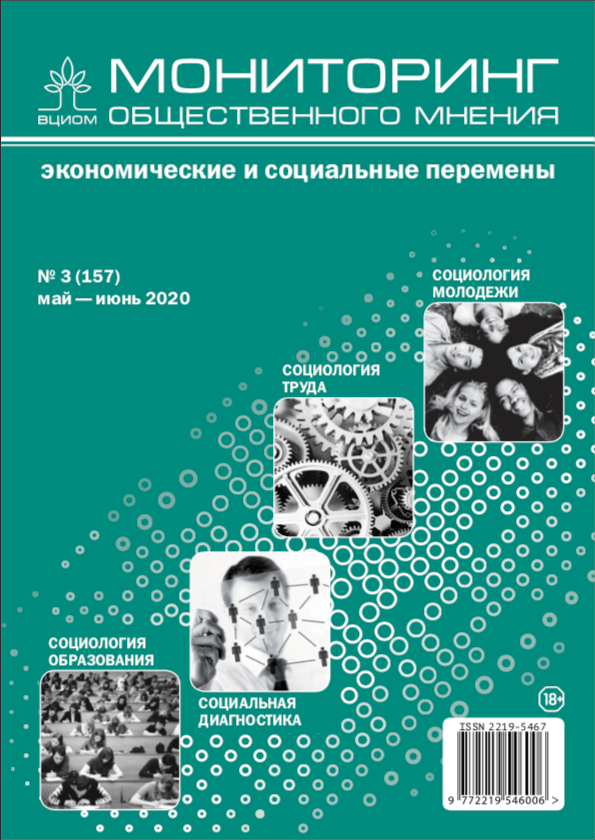Право на город: повседневные практики молодежи и партисипация в производстве городского пространства
DOI:
https://doi.org/10.14515/monitoring.2020.3.1597Ключевые слова:
город, право на город, повседневные практики, партисипация, молодежьАннотация
В исследовании поднимается вопрос о реализации права на город в оценках молодого поколения крупного промышленного города сквозь призму повседневной жизнедеятельности и участия в производстве и воспроизводстве городского пространства. Город как «среда обитания» становится важнейшей сценой поведенческих практик и взаимодействий молодого поколения, а партисипация в производстве городского пространства меняет саму молодежь, которая берет на себя ответственность за место проживания и реализацию своих жизненных планов. Основой эмпирического исследования (Екатеринбург, 2019) стала полиметодическая стратегия. Нами опрошено 750 молодых людей в возрасте от 18 до 30 лет (анкетный опрос, квотный вид отбора). Обработка полученных результатов была проведена с использованием программы SPSS. С целью глубинного понимания потребностей городской молодежи проведено 22 полуформализованных интервью, информантами в которых стали 15 девушек и 7 юношей. Также в рамках проекта опрошено 10 экспертов: специалистов/руководителей молодежных проектов, представителей научного сообщества.
Результаты исследования показали, что в ситуации стабильного существования, при отсутствии выраженного вмешательства государственных или региональных властей в сферы, которые молодые граждане оценивают как сугубо личностные или общественно значимые, лишь 5% респондентов оценивают участие в управлении городом как неотъемлемую часть своей жизни. Проведенный качественный анализ позволил наметить три модели поведения молодежи при возникновении противоречий между городскими органами власти и горожанами, стремящимися реализовать свое право на город: модель невмешательства, модель искреннего участия, модель бегства. Эмотивный аспект присвоения города формирует чувство принадлежности к городу и неразрывности своей судьбы и судьбы города. Это воплощается в языковых конструкциях, город становится персонифицированным, о нем говорят, как о человеке. Материалы исследования свидетельствуют о переходе от потребления пространства молодежью к его производству через создание инновационных и творческих форм практик взамен опривыченных и стереотипных. Одной из актуальных практик становятся DIY-инициативы, в которые готовы включиться более половины опрошенных.
Благодарность. Исследование выполнено при финансовой поддержке РФФИ и Свердловской области в рамках научного проекта № 20-411-660012 р_а «“Право на город”: социальная активность, мобилизация и партисипация молодежи»; РФФИ и АНО «Экспертный институт социальных исследований» (№ 19-011-31151).
Загрузки
Опубликован
Как цитировать
Выпуск
Раздел
Лицензия
Copyright (c) 2020 Мониторинг общественного мнения: экономические и социальные перемены ISSN 2219-5467

Это произведение доступно по лицензии Creative Commons «Attribution-NonCommercial-ShareAlike» («Атрибуция — Некоммерческое использование — На тех же условиях») 4.0 Всемирная.






